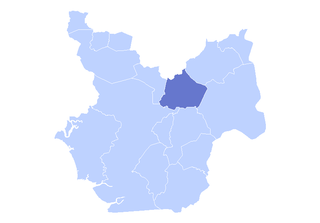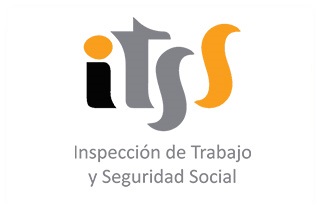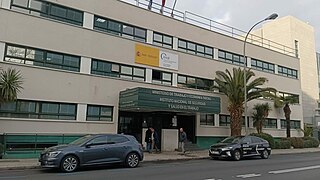
Apacilagua is a small town and municipality in the Honduran department of Choluteca. It is situated 29.3 kilometres (18.2 mi) by road to the northeast of the town of Choluteca, in the northern mid part of the province, not far from the border with the El Paraíso Department. The small town of Apacilagua lies on the Choluteca River along the RN85 road, and contains the Iglesia Catolica Apacilagua, a Catholic church. The municipality covers an area of 213.1 square kilometres (82.3 sq mi), and contains 8 villages and 149 hamlets. As of 2015 it had a population of 9,075 people.
The Catalan Food Safety Agency is specialized area of the Catalan Public Health Agency of the Generalitat de Catalunya, which aims to achieve the highest level of food safety in Catalonia through planning and supporting control actions, collaborating and cooperating with different administrations, and sectors whose activity affects, directly or indirectly, on food safety.

The Ministry of Health (MISAN) is the department of the Government of Spain responsible for proposing and executing the government policy on health, planning and providing healthcare as well as the exercise of the powers of the General State Administration to assure citizens the right to health protection. The Ministry is headquartered in the Paseo del Prado in Madrid, opposite the Prado Museum.

The Spanish Agency for International Development Cooperation (AECID) is a Spanish autonomous agency responsible for the management of the Government international development cooperation policy.

FOOD started in 2009 in six countries as a European project co-funded by the European Commission and gathering public and private partners to promote balanced nutrition. Since 2012, it has become an independent programme existing in 10 countries: Austria, Belgium, Czech Republic, France, Spain, Italy, Portugal, Romania, Slovakia and Sweden.
The Railway Safety Agency, in Spanish, Agencia Estatal de Seguridad Ferroviaria (AESF) is a Spanish state agency within the Department of Transport. The AESF is the highest railway authority and responsible for the railway safety. It carries out safety management and supervision of all elements of the railway system: infrastructures, rolling stock, railway personnel, and railway operation. The agency is responsible for granting, suspending and revoking the licenses of railway companies.

The National Security Council of Spain is the principal advisory body used by the Prime Minister for considerations of national security and foreign policy matters with senior ranks of the Administration with competencies in these matters. It was created in 2013 with the unanimous agreement of all political forces in the Cortes Generales within the framework of the National Security Strategy.

The Ministry for the Ecological Transition and the Demographic Challenge (MITECO) is the department of the Government of Spain responsible for developing the government policy on fight against climate change, prevention of pollution, protecting the natural heritage, biodiversity, forests, sea, water and energy for a more ecological and productive social model. Likewise, it is responsible for the elaboration and development of the government policy against the country's demographic challenges.
The Directorate-General of the Police (DGP) is a component of the Spanish Department of the Interior responsible for exercising the direct command of the National Police Corps, the main civil law enforcement agency of Spain. The DGP, integrated in the Secretariat of State for Security, is in charge of organize, direct, coordinate and execute the missions entrusted to the National Police by the provisions in force, in accordance with the guidelines and orders issued by the Minister of the Interior.
The Spanish Agency of Medicines and Medical Devices is a regulatory and autonomous agency of the Government of Spain that acts as the highest sanitary authority in the country in terms of medical safety on medicines, health products, cosmetics and personal care products.

The Ministry of Social Affairs (MAS), since 2020 known as Ministry of Social Rights and 2030 Agenda, is a department of the Government of Spain responsible for the government policies on social services, family, minors protection, disability and prevention of youth crime, adoptions and foster care and the promotion of cultural communication and youth association. Likewise, the department is responsible for the government policies on animal welfare and UN Sustainable Development Goals.

The Labour and Social Security Inspectorate (ITSS) is a Spanish autonomous agency in charge of the control of the compliance with labour and social security legislation. It also offers technical advice and, where appropriate, conciliation, mediation and arbitration in these matters. The ITSS is, therefore, the apex of the Labour and Social Security Inspection System.
The Directorate-General of the Civil Guard (DGGC) is a component of the Spanish Department of the Interior responsible for exercising the direct command of the Civil Guard law enforcement agency. The DGGC, integrated in the Secretariat of State for Security, is in charge of organize, direct, coordinate and execute the missions entrusted to the Civil Guard by the provisions in force, in accordance with the guidelines and orders issued by the Ministers of the Interior and of Defense, within the scope of their respective powers.

The Ministry of Consumer Affairs is the department of the Government of Spain responsible for policies regarding the protection and defense of consumer rights, as well as the regulation, authorization, supervision, control and, where appropriate, sanction of state-level gambling and gaming activities.

The Ministry of Inclusion, Social Security and Migration is a department of the government of Spain responsible for planning and carrying out the government policy on Social Security, foreigners, immigration and emigration.

The National Institute for Safety and Health at Work is an autonomous agency of the Government of Spain. The INSST is considered a technical-scientific agency entrusted with the task of analyze and research on safety and health conditions at work, as well of promoting and supporting the improvement of them, in order to achieve a decrease in occupational hazards, work accidents and occupational diseases.

The Food Information and Control Agency is the Spanish Department of Agriculture, Fisheries and Food autonomous agency responsible for managing the information and control systems of the olericulture, dairy and other markets that the Ministry determines; the control of compliance with the Food Chain Improvement Act of 2013 and the official control of Protected Designations of Origin and Geographical Indications whose territorial scope extends to more than one autonomous community, before the commercialization.
The Agencia Espacial Española is an agency of the Spanish government responsible for the Spanish space program. The agency was officially announced on 27 May 2021 and it became operational in 20 April 2023.











